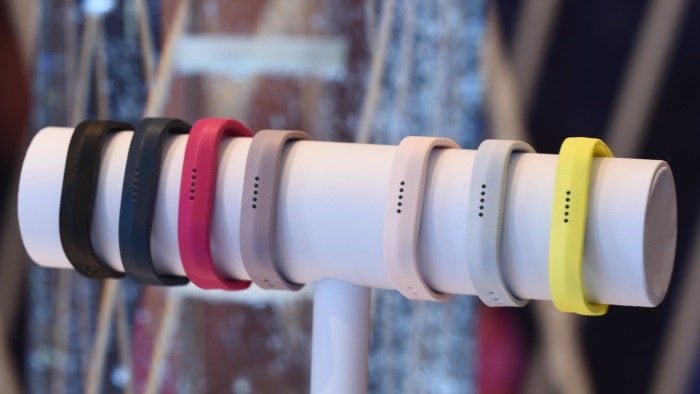Wearable technology: gathering data from tooth to toe

Roula Khalaf, Editor of the FT, selects her favourite stories in this weekly newsletter.
From fitness trackers to sleep monitors, ever more gadgets are on the market to log our waking or slumbering hours. This is the era of the “quantified self”, in which the path to self-knowledge comes through wearable technology and the health metrics it can generate.
But the tech is not merely solipsistic: employers, workplace health schemes, and insurance companies have spotted opportunities for gathering more information about our “wellness”, too.
They may be taking a cautious approach for now, says Ramon Llamas, analyst at research firm IDC, but they are “trying to figure out how they incorporate these wearables into their strategy”.
Fitbit, a market leader in fitness trackers, has partnerships with a number of US health insurers, as well as a “corporate wellness” business that it folded into FitBit Group Health in June.
Chicago-based Vitality Group has teamed up with some big health and insurance industry partners. One scheme, developed with John Hancock Insurance, rewards consumers for using an Apple Watch that sends data to the insurer.
Tal Gilbert, Vitality’s US chief executive, says insurance companies will need to take a long view of the benefits and risk reductions that come from having access to customer health data through such devices. “We talk about it as a shared-value model of insurance,” he says. Small improvements in health now will have an impact over many years on the policy and on the employee.

Minnesota-based insurer UnitedHealthcare has developed a programme that offers financial incentives to customers who meet specified walking goals, measured by a custom-designed wearable.
Craig Hankins, vice-president of digital products, says the initiative assesses three types of walking: “Employees can earn credits of up to $4 per day based on the frequency, the intensity and the tenacity.”
Ohio-based Beam Dental has developed a dental health insurance plan in which clients use a Bluetooth-connected toothbrush. Chief executive Alex Frommeyer says the start-up intended to sell an internet-connected toothbrush as a consumer health product, but soon realised it could marry tech to insurance.
He says Beam is learning how to mitigate its risks and improve dental health for its clients, by using data from the toothbrushes, which are given to people who sign up for the plan.
Some experts predict that workers in critical occupations, such as airline pilots or firefighters, may ultimately be required to allow their employers to monitor their general health and stress levels via wearable technology.
Not everyone will welcome sharing intimate personal information with the boss, however, says Daniel Cooper, privacy partner at London law firm Covington & Burling. “Wearable devices could be a good way for insurers to get the data . . . but it’s essential to address wearers’ privacy and fair treatment concerns and the risk of discrimination against those who opt out.”
Comments